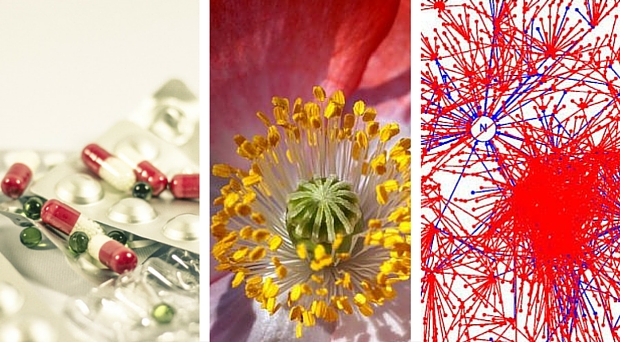
A timeline for conducting your clinical trial
This year, in celebration of International Clinical Trials Day, BioMed Central put together a timeline of the stages of conducting a clinical trial. We gradually revealed more stages throughout the week, in the lead up to the day itself. We invited some of the greats in the field to comment on why each stage is important to a trial, what should be considered and why it should be considered at that point in the trial timeline.
Think you know everything about plants?
Fascination of Plants Day was celebrated on 18 May. The goal of this day, established in 2012, is to get people around the world excited about plants and enthused about the importance of plant sciences. We at BioMed Central couldn’t contain our excitement for the world of plants, and so we put together this quiz for you to find out how much you really know.
Dealing with retractions
With an increasing number of retractions across the scientific literature, how can we keep on top of them? And even when retracted, how can we ensure the impact of the results doesn’t continue to propagate? New research published in Research Integrity and Peer Review assessed the citation network of an article before and after retraction and here, co-author Paul van der Vet discussed the research.
From probiotics in healthy people to deciding the fate of those living with hepatitis
 Do probiotics have a beneficial effect on healthy adults? Probiotics, also known as ‘good’ bacteria, are often said to be useful for your digestive system. But how advantageous is it to ingest products that contain these probiotics? Published in Genome Medicine is an article investigating whether probiotics really are beneficial to healthy individuals. Oluf Pedersen reveals more
Do probiotics have a beneficial effect on healthy adults? Probiotics, also known as ‘good’ bacteria, are often said to be useful for your digestive system. But how advantageous is it to ingest products that contain these probiotics? Published in Genome Medicine is an article investigating whether probiotics really are beneficial to healthy individuals. Oluf Pedersen reveals more
 Do labradors hold the key to successful aging? Following Vicki Adams and her colleagues’ publication in Acta Veterinaria Scandinavica today, in this blog she explains more about their research findings and how dogs may provide an insight into understanding successful aging in humans.
Do labradors hold the key to successful aging? Following Vicki Adams and her colleagues’ publication in Acta Veterinaria Scandinavica today, in this blog she explains more about their research findings and how dogs may provide an insight into understanding successful aging in humans.
 Hawk vs goose: how to cope with an unpleasant neighbour: What do you do when a very large and very angry goose wants to take over your nest? For the black sparrowhawk the answer, published in BMC Evolutionary Biology, is to build a lot of nests – and perhaps try breeding earlier next year.
Hawk vs goose: how to cope with an unpleasant neighbour: What do you do when a very large and very angry goose wants to take over your nest? For the black sparrowhawk the answer, published in BMC Evolutionary Biology, is to build a lot of nests – and perhaps try breeding earlier next year.
 Collecting for the conservation of endangered insect species – smartphones vs. butterfly nets? As part of BMC Ecology’s celebration of Endangered Species Day, Dr. Josef Settele discussed the shifting practices and attitudes of natural history research in the modern era.
Collecting for the conservation of endangered insect species – smartphones vs. butterfly nets? As part of BMC Ecology’s celebration of Endangered Species Day, Dr. Josef Settele discussed the shifting practices and attitudes of natural history research in the modern era.
 A peerless review? Automating methodological and statistical review: Peer review is the primary mechanism for ensuring the integrity of the published literature; however, it is a human system with all of a human’s fallibilities. Here Daniel Shanahan asked whether we could use text mining to automate some aspects of the peer review process to address some of its limitations, and introduces a new pilot to evaluate the software.
A peerless review? Automating methodological and statistical review: Peer review is the primary mechanism for ensuring the integrity of the published literature; however, it is a human system with all of a human’s fallibilities. Here Daniel Shanahan asked whether we could use text mining to automate some aspects of the peer review process to address some of its limitations, and introduces a new pilot to evaluate the software.
 Plain cigarette packaging introduced in the UK: Following cigarette packaging legislation introduced in the UK, cigarette packs will now be a single color and covered with large health warning images. This blog looks at some studies on the health impact of standardized cigarette packs.
Plain cigarette packaging introduced in the UK: Following cigarette packaging legislation introduced in the UK, cigarette packs will now be a single color and covered with large health warning images. This blog looks at some studies on the health impact of standardized cigarette packs.
 Clinical trial data and articles linked for the first time: After years of hard work, linked clinical trials are here! It’s now possible to link all published articles related to a clinical trial through the CrossMark dialogue box. Daniel Shanahan, Associate Publisher at BioMed Central, explained more about it in this blog.
Clinical trial data and articles linked for the first time: After years of hard work, linked clinical trials are here! It’s now possible to link all published articles related to a clinical trial through the CrossMark dialogue box. Daniel Shanahan, Associate Publisher at BioMed Central, explained more about it in this blog.
 Governments poised to decide fate of millions living with viral hepatitis: With the World Health Assembly occurring from 23 to 28 May 2016, Raquel Peck, CEO of the World Hepatitis Alliance, discussed a potentially pivotal moment in the history of viral hepatitis.
Governments poised to decide fate of millions living with viral hepatitis: With the World Health Assembly occurring from 23 to 28 May 2016, Raquel Peck, CEO of the World Hepatitis Alliance, discussed a potentially pivotal moment in the history of viral hepatitis.
Comments